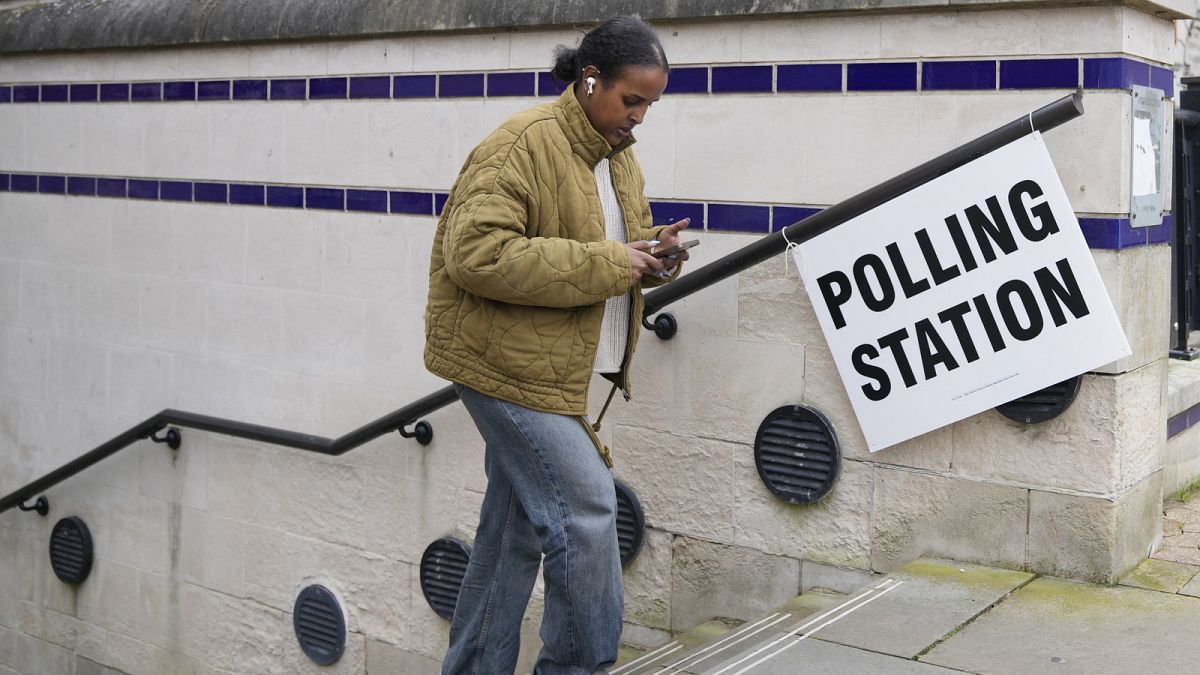The United Kingdom’s general election, the first since the country formally exited the European Union, is currently underway. Polling stations in 650 constituencies across England, Scotland, Wales, and Northern Ireland opened at 7am local time on Thursday morning and will continue until 10pm. This election marks the first time voters are required to bring photo ID to cast their ballots after a review of constituency borders in 2023 resulted in changes to seat numbers, with England gaining ten seats. Conservative Prime Minister Rishi Sunak and Labour leader Keir Starmer are among those expected to cast their votes in their respective constituencies.
The UK general election utilizes an electoral system called first-past-the-post, where the candidate with the most votes in each constituency becomes a Member of Parliament. The party with a majority of seats, at least 326, typically forms the government. Results are expected to come in overnight, with most constituencies announcing their winning candidates in the early hours of the morning. An exit poll releasing an estimate of the seat allocation will be unveiled at 22.00 BST, with results expected to be confirmed by 6.30am local time on Friday. It is crucial for voters to remember the new photo ID requirement to avoid complications at the polling stations.
Despite the ongoing election, reports have emerged of some voters experiencing delays in receiving their postal ballot papers. Scottish politicians have criticized the delay, with many schools in Scotland already on summer break, preventing families who had planned to vote by post before leaving for holidays. This issue has raised concerns about potential disenfranchisement of voters who rely on postal voting. The delay in receiving ballot papers could impact the overall voter turnout and potentially affect the election results in certain areas.
The 2023 general election is the first since the UK formally left the European Union, setting the stage for significant political changes. The Brexit process has deeply divided the country, with major implications for the future of the UK’s relationship with the EU and the rest of the world. Political parties have been campaigning on a range of issues, including Brexit, healthcare, education, and the economy, seeking to sway voters with their policies and promises. The election results will shape the direction of the UK in the post-Brexit era, with implications for various sectors of society.
The UK general election represents a crucial moment in the country’s democratic process, with voters having the opportunity to participate in shaping the future of their nation. The outcome of the election will determine the composition of the House of Commons and the party that will lead the government. As the results roll in overnight, political analysts and citizens alike will be closely watching to see how the votes align with the pre-election polling and predictions. The importance of voter turnout and the impact of postal voting delays on the overall election results will be subjects of much discussion in the aftermath of the election.
In conclusion, the 2023 UK general election marks a significant moment in the country’s political landscape as the first election following Brexit. The new requirement for photo ID and the delays in postal voting have highlighted potential challenges in the voting process. With major political parties competing for seats in the House of Commons, the outcome of the election will have far-reaching consequences for the UK’s future. As results are announced and the winners declared, the focus will shift to analyzing the impact of the election on key issues and the country’s trajectory in the post-Brexit era.











